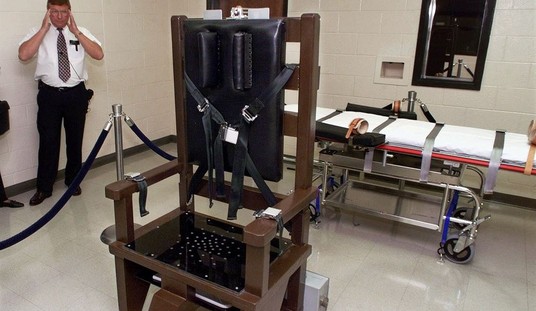Is this a portent of things to come in the fall or simply an outlier? While perhaps not as seismic as the ouster of Eric Cantor two years ago, it’s still rather shocking to learn that Kansas Congressman Tim Huelskamp not only lost his primary battle against Roger Marshall, but he lost it in what amounts to a landslide. (Politico)
GOP Rep. Tim Huelskamp, a three-term incumbent and House Freedom Caucus member from Kansas, lost his House primary Tuesday night to challenger Roger Marshall, a physician backed by agricultural interests and several big-spending outside groups.
Marshall had 57 percent of the vote to Huelskamp’s 43 percent when The Associated Press called the race with 72 percent of precincts reporting.
Huelskamp’s primary in the “Big First” district, a safely Republican seat, became a proxy war between hard-line conservatives and more traditional GOP groups and donors.
The incumbent had the backing of traditionally conservative groups such as Americans for Prosperity and Club for Growth, while Marshall was getting a ton of monetary support from more traditionally establishment oriented resources such as the US Chamber of Commerce. But wasn’t this supposed to be the year of the outsider? It’s true that we’re talking about an incumbent and Marshall had never held office, but their positions didn’t line up that way. The real disconnect here comes from looking at a GOP base which was supposedly so opposed to the establishment and business as usual in the GOP that they nominated Donald Trump for president. Huelskamp was about as “outsider” as they come in terms of the usual internecine battles which divide the GOP. Keep in mind that he was part of the big purge after Mitt Romney lost the last election, being removed from key leadership positions by John Boehner’s supporters, along with Justin Amash and David Schweikert.
If this is a trend it’s certainly hard to detect elsewhere. So perhaps it was just a return to the old maxim of all politics being local. Potential supporters may have been put off by the loss of influence detected when Huelskamp lost his position on the House Agriculture Committee. Marshall ran a campaign in which he accused his opponent of doing more “grandstanding” than actual work for the citizens of Kansas. He also promised to get that committee seat back for the 1st District. Perhaps that was a more effective message than I would have guessed.
In the end, however, I suspect it just came down to the money. As was noted in the Politico piece, the cash on Marshall’s side represented a flood and it was hard to escape.
In Huelskamp’s primary, outside groups poured more than $2.5 million into the massive, 63-county stretch of Kansas farmland. Much of the advertising litigated Huelskamp’s commitment to supporting local agriculture in Congress.
“That much money coming in from outside, that’s hard,” said Jeff Glendening, who runs the Kansas chapter of Americans for Prosperity, the national conservative group that backed Huelskamp. “It flooded the district. It was impossible to avoid those messages.”
That’s hard to argue with. There’s been a realignment and strengthening of the traditional party establishment since before John Boehner retired and some of that may be continuing to this day. The money is certainly leaning in that direction, so perhaps this primary can still be treated as an outlier, but it speaks to where the national funding is heading at the same time.









Join the conversation as a VIP Member